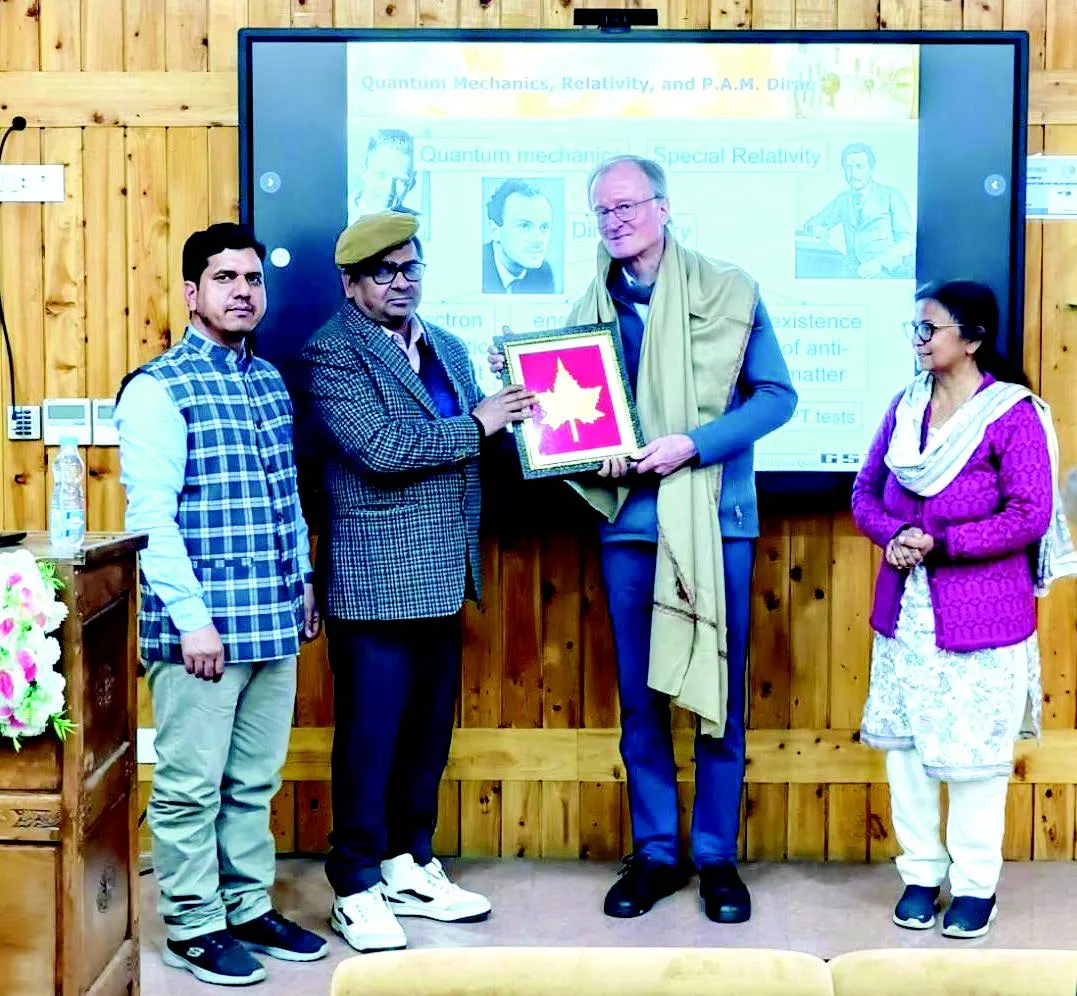Srinagar, Apr 17: The National Institute of Technology (NIT) Srinagar, in collaboration with the Indian National Young Academy of Science (INYAS), Tuesday organised an expert talk featuring Prof Wolfgang Quint, a senior professor, from GSI Helmholtzzentrum für Schwerionenforschung, Darmstadt, Germany.
A statement of NIT issued here aid that Prof Quint, an academic researcher from Heidelberg University whose expertise spans various topics, including Penning trap and Antiproton research delivered the expert talk.
During his speech, Prof Wolfgang Quint talked about how he studies really tiny particles using special techniques.
He showed traps and controls these tiny particles, and also demonstrated methods he has developed.
Prof Quint explained how his research helps us understand the basic rules of the universe better.
He talked about how his work can reveal secrets about how everything works at the smallest level.
HOD Department of Physics, Prof Muhammad Ikram thanked Prof Quint for accepting the invitation and delivering the expert talk on the ‘Ion Trap’.
He said Ion traps were important today as they help scientists do precise work in fields like physics and chemistry.
Prof Ikram praised member of INYAS and Assistant Professor at Department of Physics, Vijay Kumar for setting up talks by experts on campus.
He said these talks were important and students should take the chance to learn and get inspired from them.
The session concluded with a vibrant Q&A segment, during which attendees engaged Prof Quint in stimulating discussions on various topics, from quantum entanglement to the search for new physics beyond the Standard Model.
Earlier, Vijay Kumar welcomed the guest speaker.
He commended Prof Quint for his enlightening presentation and emphasized how these experiences inspire students to pursue research in various cutting-edge fields.
The purpose of such sessions is to bridge the gap between academia and industry.
Vijay said such initiatives were instrumental in advancing research and education, promoting a culture of continuous learning and innovation within academic institutions.







